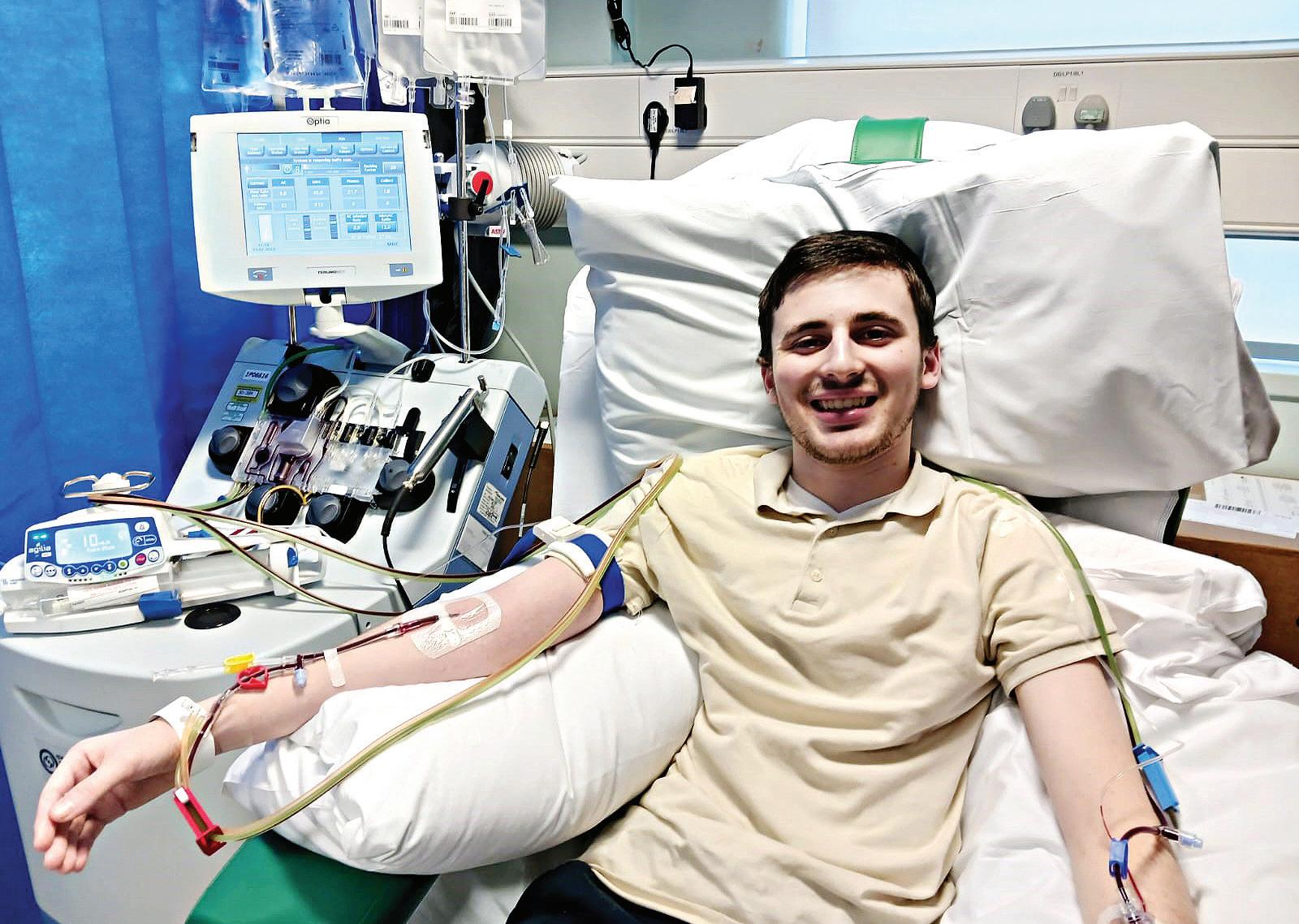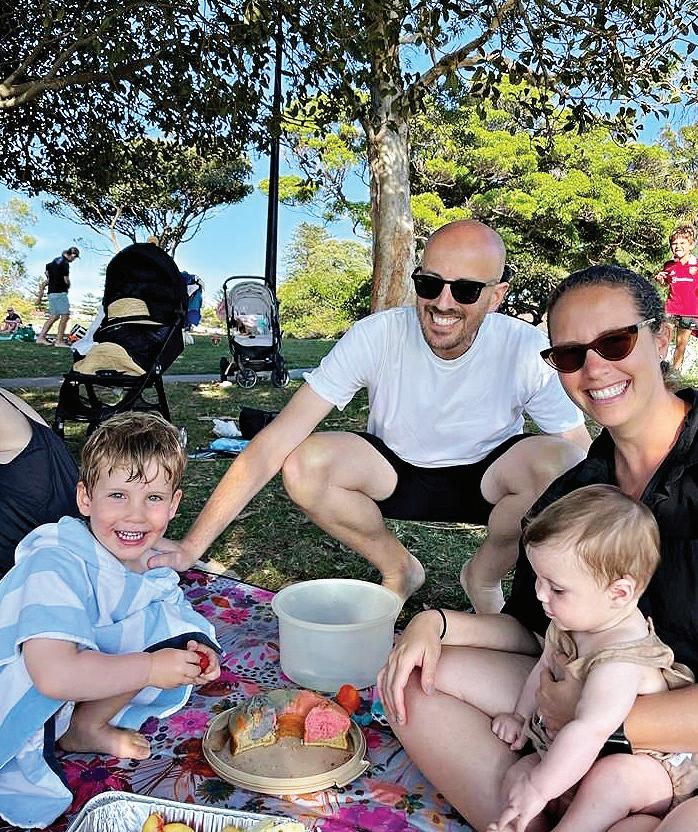
1 minute read
Jewish Swab Week registers 1,000 potential new donors
by Jewish News
The Sue Harris Campaign has held its annual Jewish Swab Week. The event took place in 10 schools across London and Manchester as well as an expanded programme in Gateshead in four yeshivot and two girls’ seminaries, writes Michelle Rosenberg.
Between the two events the charity, which has played a major role in the worldwide effort to recruit Jewish stem cell donors, successfully registered more than 1,000 potential life-saving donors.
And, in wonderful news for the organisation, a donor recruited in 2002 is donating his stem cells. Chananya Landau, recruited at Menorah Grammar School for Boys, said: “A few months ago I found out that I was a full match for someone and here I am doing the stem cell donation now. It’s super easy and it doesn’t take more than a couple of days – it’s an amazing thing to do. You are saving a life. You have no idea what you could do for the world.”
Six other students recruited in recent years by the campaign are also known to have donated stem cells. Natalie Deller, coordinator of the Sue Harris Campaign said: “It’s fantastic to see our campaign delivering lifesaving opportunities. For those considering joining the stem cell register, individuals like Chananya are exemplars of how the small act of swabbing your cheek makes a vital difference.”

A fortnight before Jewish Swab Week, the Sue Harris Campaign initiated a pilot of its recruitment model in Luton, which is one of the UK’s most diverse communities. Blood cancer patients from ethnic
MIGHT YOU BE A DONOR FOR MURRAY?
Murray Foltyn aged 41, formerly of Hampstead, now living in Sydney, Australia, urgently needs an unrelated stem cell donor to help save his life.

Married to Claudia and with two young children – Jamie (three-yearsold) and Georgia (just nine months), Murray’s potential lifesaver is likely to share his Ashkenazi background and have Czech or Russian ancestors. Indeed, he can trace his family back to the village of Trnava (today part of Slovakia) or Morava Ostrava (today close to the border of Poland).
minorities or of mixed heritage in need of a matching unrelated stem cell donor have vastly inferior chances compared to white counterparts.
This is because 70 percent of all registered stem cell donors are white, even though 88 percent of the world’s population is not.










